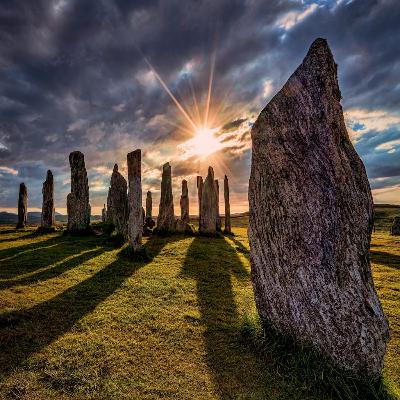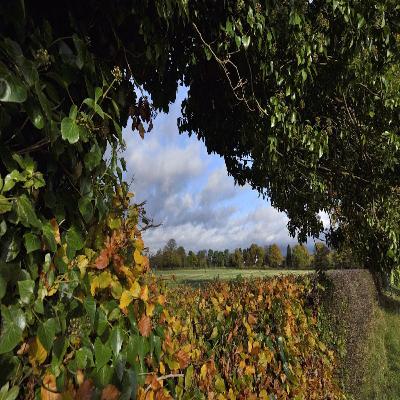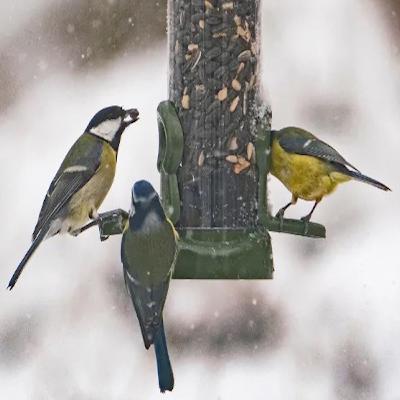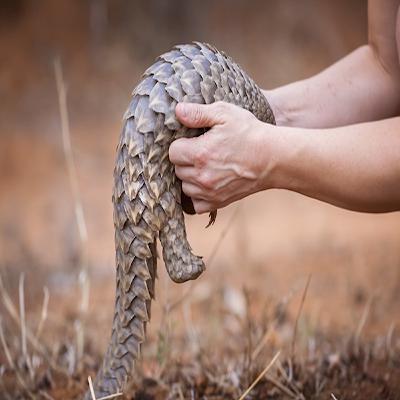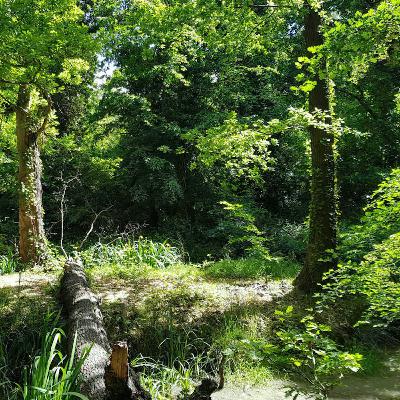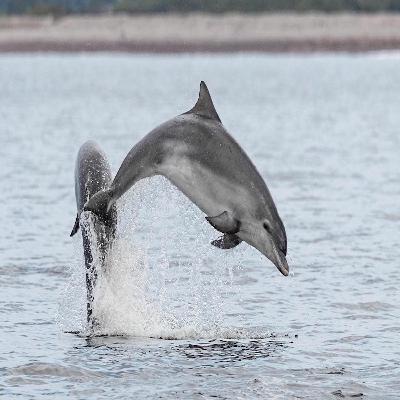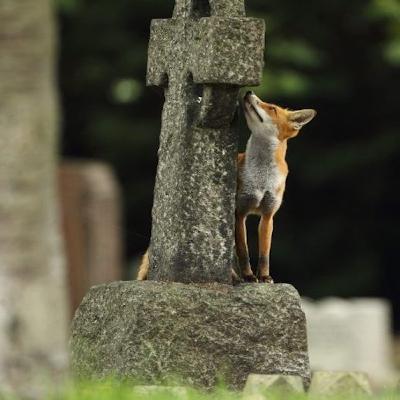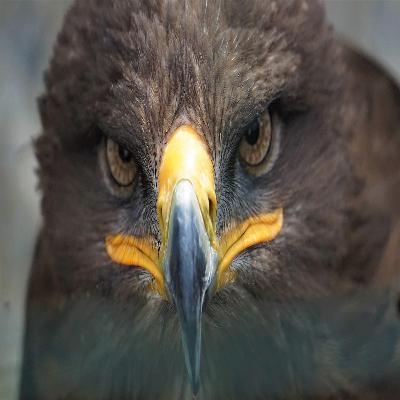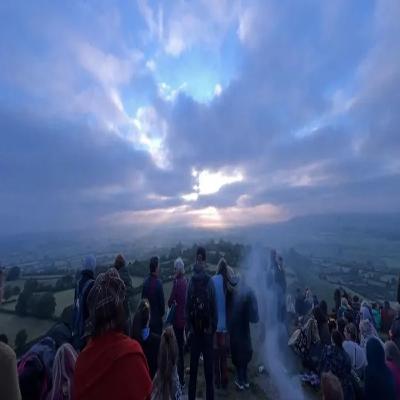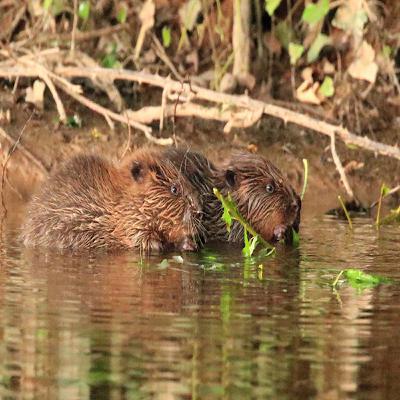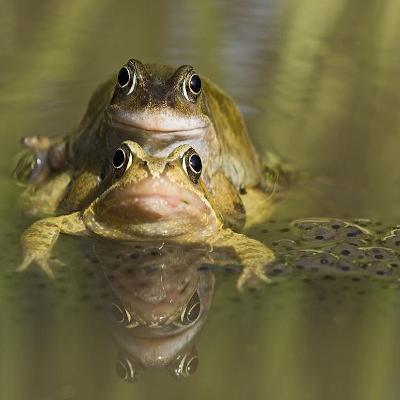Discover Wildlife Matters The Podcast
Wildlife Matters The Podcast

Wildlife Matters The Podcast
Author: Nigel Palmer
Subscribed: 22Played: 314Subscribe
Share
© Copyright 2026 Nigel Palmer
Description
Welcome to Wildlife Matters, where we explore the incredible world of wildlife and nature.
Join your host Nigel Palmer, a lifelong nature lover and expert with over 30 years experience of working with wildlife, as he takes you on an adventure into the fascinating complexities of the natural world.
Through solo shows and engaging interviews, we deep dive into topics such as Animal behaviour, ecology of species, plants, biodiversity, and habitat loss, we will take you on engaging wildlife and countryside walks to some of Britain's most enchanting places. We stand up and speak out for wildlife and nature by investigating animal persecution and exposing the cruelty of hunting and other blood sports as well as holding our government to account for their shocking poor performance on the environment and nature.
If you are a nature enthusiast seeking knowledge, connection and inspiration, the Wildlife Matters Podcast is for you. Please like and subscribe wherever you get your podcasts from and visit our website www.wildlife-matters.org
Join your host Nigel Palmer, a lifelong nature lover and expert with over 30 years experience of working with wildlife, as he takes you on an adventure into the fascinating complexities of the natural world.
Through solo shows and engaging interviews, we deep dive into topics such as Animal behaviour, ecology of species, plants, biodiversity, and habitat loss, we will take you on engaging wildlife and countryside walks to some of Britain's most enchanting places. We stand up and speak out for wildlife and nature by investigating animal persecution and exposing the cruelty of hunting and other blood sports as well as holding our government to account for their shocking poor performance on the environment and nature.
If you are a nature enthusiast seeking knowledge, connection and inspiration, the Wildlife Matters Podcast is for you. Please like and subscribe wherever you get your podcasts from and visit our website www.wildlife-matters.org
85 Episodes
Reverse
This week on Wildlife Matters, I kick off an exciting journey through the temperate rainforests along Scotland's northwest coast. We'll explore the ancient, mossy woodlands, home to vibrant wildlife and ecosystems. Before we set out, we discuss important nature stories, including avian influenza and why blaming wild birds is misguided. Intensive farming is a bigger factor. We also discuss a recent fox hunt that disturbed a cemetery, underscoring the need for stronger laws. On a brighter note, we highlight the Warminster Toad Patrol, a great example of community action for wildlife. Come along as we discover how everything in nature is connected.Scotland's Ancient Rainforest Part OneThis week's Wildlife Matters podcast takes you on a week-long trek through Scotland's temperate rainforests. It's the first part of an adventure that shows off the beauty and importance of these old woodlands. Before we start, I cover some key wildlife stories in our Nature News segment. One story features Phil Lymbery, who explains that wild birds aren't primarily to blame for avian influenza; intensive farming is a bigger cause and that we need to rethink our view of the relationship between wildlife and farming.We also discuss a troubling story about a fox hunt that passed through a cemetery, raising questions about hunting and the need for stronger laws. On a positive note, we celebrate the Warminster Toad Patrol, who are helping toads safely reach their breeding ponds as Valentine's Day approaches. Their work shows how communities can come together to protect wildlife and support biodiversity.In our Mindful Moments segment, I encourage listeners to reflect on nature's resilience, as shown by a Blackbird singing through the winter gloom. This moment reminds us to find joy and meaning even when things are tough. After this, we head into the magical temperate rainforests, full of mystery and life, and end the episode with a promise of more adventures in the next part.Takeaways:The podcast starts with a story about a week-long trip through Scotland's temperate rainforests, highlighting the area's rich wildlife and ancient woods.In Nature News, we look at common myths about avian influenza and explain that wild birds aren't to blame; intensive farming is the main cause.A recent fox hunt that went through a cemetery shows why we need stronger hunting rules to protect wildlife and public areas.The Warminster Toad Patrol's work to help toads migrate safely during breeding season is a great example of community support for wildlife and animal welfare.In Mindful Moments, a Blackbird's song in the winter reminds us that we can find resilience and joy even when times are tough.The episode culminates in an invitation to join us on a captivating exploration of Scotland's ancient rainforests, offering thrilling wildlife encounters and a deeper understanding of these vital ecosystems.Companies mentioned in this episode:Compassion in World FarmingLeague Against Cruel SportsDepartment for the Environment, Food and Rural AffairsWildlife MattersThe
This week on Wildlife Matters, we explore animal tracks in a local snowy woodland, highlighting how tracking wildlife reveals connections among species, their habitats, and the environment.We focus on the wildlife species that call this peaceful woodland home and discuss how natural sounds shape our experience across different habitats. As we walk through the snowy landscape, we encourage listeners to pause and enjoy the calm and beauty of nature. Before we begin, we cover important wildlife and environmental news from this week, highlighting the urgent need to address the climate crisis and protect biodiversity. Join us as we discover woodland secrets and share important wildlife stories.In this episode, we invite listeners to walk with us through a snowy woodland and listen to the sounds of nature. We start with a Nature News update on the growing environmental challenges in the UK, including species decline and the need for stronger government action on sustainability. The Wildlife Trust shares insights on how economic growth and biodiversity are connected, and why we need to rethink our environmental policies. Next, we practice wildlife tracking and look for stories in the animal footprints we find in the snow. By noticing these signs, we learn how all life in the woods is connected. We encourage listeners to explore nature, stay curious, and help protect wildlife. The episode reminds us why it is important to care for our ecosystems for the future.Takeaways: In this episode, we venture into a snow-covered woodland to discover wildlife. These tracks show how different species interact with their habitats. significantly enhance our experience of different wildlife habitats and the biodiversity they host. The Wildlife Trust raises urgent concerns about the nature and climate crises in Britain. They call for the government to keep its promises and protect biodiversity.Recent studies show that mountain hares in Scotland are struggling to adapt to climate change. They are not changing their fur shedding patterns as snow cover decreases, which makes them more vulnerable to predators.We also hear about a hopeful conservation project. It could bring elk back to the UK by 2028. This is a positive step toward restoring lost species and improving local ecosystems.During the episode, we give practical tips for spotting animal tracks in the snow. We hope to help listeners enjoy watching wildlife and inspire them to explore nature on their own.Companies mentioned in this episode: Wildlife Trust Environment Act Office for Environmental Protection Rewilding Britain Nottinghamshire and Derbyshire Wildlife Trusts University of Michigan James Hutton Institute Wildlife Matters OrganisationWant to get in touch? Email us Hello@wildlife-matters.org
In this week's episode of the Wildlife Matters podcast, we explore how to care for garden birds during the winter months. As winter sets in, providing food and shelter is essential for our feathered friends, who face significant challenges surviving the season. We also take a moment for reflection with our Wildlife Matters Mindful Moments, featuring a beautiful audio nature soundscape from our recent winter walk in the South Downs.Additionally, this episode shares uplifting stories from the wildlife world, including encouraging developments for hedgehogs in Dorset and restoration efforts for Scotland's ancient rainforests. We invite our listeners to participate in the 2026 Big Garden Birdwatch and to share their experiences, fostering a closer connection with nature.Show Notes:In this week's instalment of the Wildlife Matters podcast, we discuss the importance of caring for our avian companions during the cold winter months. The episode begins with an engaging segment of Wildlife Matters Nature News that highlights positive developments regarding Scotland's ancient rainforests and the efforts of the Dorset Hedgehog Rescue. These stories illustrate the vital role of community involvement in wildlife conservation and emphasise the ongoing challenges faced by various species.Following this informative discussion, we present a serene auditory experience featuring a delightful soundscape from a winter walk in the South Downs, allowing listeners to immerse themselves in nature's soothing ambience. The episode concludes with a comprehensive guide on transforming gardens into safe havens for wintering birds. We detail practical strategies for providing nutritious food, clean water, and secure shelter, empowering our audience to make a meaningful difference in the lives of these vulnerable creatures and fostering a deeper connection with the natural world.Takeaways:- This episode emphasises the need to care for garden birds during harsh winter months and offers essential guidance for creating welcoming outdoor spaces.- We share inspiring news about restoration efforts for Scotland's ancient rainforests, stressing the importance of biodiversity and community participation in conservation.- The Wildlife Matters Guide provides detailed strategies for feeding birds, highlighting the significance of nutrition and shelter for their survival during winter.- Listeners are encouraged to take part in the upcoming RSPB Big Garden Birdwatch 2026, promoting citizen science and community engagement in observing and supporting local wildlife.- We underscore the critical role of clean feeding areas, appropriate food selection, and regular maintenance in cultivating a thriving bird-friendly environment in gardens.- Our audience is invited to share their experiences and insights regarding wildlife interactions, helping to build a collaborative community of nature enthusiasts dedicated to conservation.Links referenced in this episode:- wildlifematters.co.uk- dorsethedgehogrescue.co.uk- rspb.org.ukCompanies mentioned in this episode:- Nature Scotland- Woodland Trust- Dorset Hedgehog Rescue- RSPBIf you would like to contact us, our email address is info@wildlife-matters.org
This week's episode of the Wildlife Matters podcast explores the fascinating phenomenon of starling murmurations, which are a captivating spectacle as thousands of these birds gracefully navigate the evening skies of the UK. In Wildlife Matters Nature News, we report on a recent government initiative to ban trail hunting in England and Wales, marking a significant advance in the broader animal welfare strategy. This episode also highlights the importance of restoring natural habitats, exemplified by a project in Cheshire that revitalises floodplain grazing marshes to support local biodiversity. Additionally, we share an endearing listener's narrative about a charming robin named Scruffy, whose antics offered solace during the pandemic. Join us as we reflect on the wonders of nature, the pressing need for conservation, and the joy that wildlife brings to our lives.The Wildlife Matters podcast presents the enchanting spectacle of starling murmurations, interwoven with poignant narratives surrounding wildlife conservation. The episode begins with an overview of the government's recent initiatives to bolster animal welfare, particularly the ban on trail hunting, a contentious issue among conservationists. The hosts express gratitude for this legislative advancement and highlight the broader implications for wildlife protection. As they transition to the main feature, the captivating world of starling murmurations takes centre stage. The hosts describe the breathtaking visual display of thousands of starlings soaring through the dusk sky, effortlessly manoeuvring in intricate patterns. This mesmerising behaviour is not merely for show; it serves vital functions in predator evasion and social cohesion among the flock. Using scientific insights, the podcast explains the evolutionary advantages of such collective behaviour, leaving listeners in awe of nature's ingenuity. Conclusively, the episode wraps up with heartwarming listener stories, particularly that of a robin named Scruffy, who provided companionship during challenging times. This personal connection to wildlife underscores the importance of nurturing our relationships with nature, reinforcing the podcast's overarching theme of conservation and appreciation for the natural world.Takeaways: The recent government initiative banning trail hunting represents a significant advancement in animal welfare legislation, addressing long-standing concerns surrounding wildlife protection. The Cheshire Wildlife Trust's ambitious restoration project aims to revitalise floodplain grazing marshes, enhancing biodiversity and mitigating flood risks for local communities. Jackie's heartwarming account of her bond with a scruffy robin illustrates the profound impact that nature can have on human well-being during challenging times. Starling murmurations, a mesmerising natural phenomenon, serve as a remarkable demonstration of collective behaviour among birds, captivating observers throughout the UK during autumn and winter. The decline of starling populations, which has seen an alarming reduction of over 80% since the 1970s, necessitates urgent conservation efforts to preserve these remarkable birds. The Wildlife Matters podcast continues to engage a global audience, fostering a community passionate about wildlife and nature, while looking forward to new adventures in 2026. Companies mentioned in this episode: Cheshire Wildlife Trust Environment Agency
This week's Wildlife Matters podcast celebrates the Winter Solstice and its intrinsic connection to nature. As we reflect on this celestial event, which marks the shortest day and the longest night of the year, we are reminded of its profound significance across cultures and of the cyclical nature of life itself. The Winter Solstice not only symbolises the triumph of light over darkness but also ignites a sense of hope and renewal, encouraging introspection and gratitude for the past year. In this special episode, we share two captivating stories from folklore, beginning with the tale of St. Mungo, the revered patron saint of Glasgow, and his remarkable encounter with a robin, which illustrates the enduring bond between humanity and the natural world. Join us around the metaphorical campfire as we delve into these narratives that resonate with the spirit of this remarkable juncture in our annual calendar.Takeaways: The Winter Solstice serves as a pivotal moment for reflection and introspection regarding our relationship with nature. Celebrating the Winter Solstice allows us to honour life's cyclical nature and anticipate the return of light. Through storytelling, we connect with ancient traditions that emphasise gratitude and mindfulness during this season. The tales shared honour the profound bond between humanity and the natural world, illustrating the importance of kindness and community. Links referenced in this episode:wildlifemattersnaturestoryteller
Hello and welcome to this week's Wildlife Matters podcast. In this episode, we explore Hedgerows and why they are vital for England's future, boosting biodiversity, combating climate change, and enhancing soil health.The enchanting world of hedgerows is a vibrant ecosystem that plays a crucial role in the British countryside. The discussion emphasises the historical significance of hedgerows, tracing their origins back to the Bronze Age. These natural corridors are not mere boundaries but vital habitats teeming with diverse wildlife. The episode delves into the importance of hedgerows in combating climate change, enriching biodiversity, and providing essential shelter for various species. We cover the alarming decline in hedgerow density caused by agricultural practices and urban expansion, with detrimental effects on wildlife populations and the overall ecosystem. We further explores the symbiotic relationships within hedgerows, illustrating how they facilitate pollination and soil health and serve as crucial refuges for numerous animals, including birds, mammals, and insects. The call to action is clear: the preservation and rejuvenation of hedgerows are imperative for sustaining the intricate web of life in our countryside and ensuring a resilient environment for future generations.We hope you have enjoyed our guide to hedgerows. If you do, please like, share, and leave us a review. Your support really helps to grow our community. If you don't already follow us on social media, join us as we count down our Top 10 episodes, and get ready as we will reveal our most listened to episode on Christmas Eve-we hope it sparks your curiosity.We've been absolutely thrilled by the incredible response to our older episodes. We truly appreciate all the comments and feedback we've received; it means the world to us! A warm welcome to our new listeners as well; we're so glad you're here on this journey with us. Keep the conversation going because we love hearing from you!Wildlife Matters will return in two weeks for our winter solstice special, and we have two traditional nature-based stories to share with you that we hope you will enjoy on a cold, dark winter's evening. But until then, stay curious, wild ones. This is Wildlife Matters signing off. Takeaways: Hedgerows serve as vibrant ecosystems, playing a crucial role in biodiversity and environmental health. The initiative 'Get Cumbria Buzzing' demonstrates the importance of engaging youth in conservation efforts. Operation Major aims to combat wildlife crime and raise awareness about the treatment of dogs involved. Most years yield abundant seeds and fruits, significantly impacting wildlife populations. The decline of hedgerows has severe consequences for various species and overall ecosystem stability. Hedgerows provide essential shelter for livestock and help farmers manage their agricultural land efficiently. Links referenced in this episode:getcumbriabuzzingcumbriawildlifetrustfibrousprojectgigabitoperationmajorbadgertrustleagueagainstcrueltysportsnaturewatchfoundation
In this week’s Wildlife Matters podcast, we dive deep into the fascinating world of winter wildlife care in our gardens. Discover essential practices that not only nourish your garden’s ecosystem but also provide a haven for local creatures during the frosty months ahead.We’ll share a treasure trove of tips—ranging from creating cosy shelters to offering vital sustenance—that embrace the principle of minimal intervention. Our goal is to ensure that your garden remains a thriving sanctuary for wildlife, even when the temperatures dip.But that’s not all! We take time to unwind with our Wildlife Matters Mindful Moments, where you can immerse yourself in the gentle sounds of late autumn—a soothing escape that fosters tranquillity and a profound connection to nature’s rhythms.In our Nature News, we’ll bring you the latest stories from the world of wildlife and conservation. From groundbreaking conservation efforts to inspiring reintroduction successes, these updates highlight the remarkable strides being made to protect our planet’s biodiversity.Join us on this journey as we enhance the well-being of our garden ecosystems while revelling in the serene beauty of the natural world around us. Tune in and let’s celebrate the wonders of wildlife together!Takeaways: In this episode of the Wildlife Matters podcast, we provide essential guidance on nurturing wildlife within your garden and wildlife pond during the winter months. We discuss the importance of maintaining a clean wildlife pond to prevent the accumulation of harmful gases beneath the ice, which can endanger aquatic life. Prudent management of fallen leaves in the pond is necessary to prevent excessive algae growth, which can deplete oxygen levels and harm aquatic ecosystems. Listeners are encouraged to create a welcoming environment for local wildlife by leaving parts of their garden wild and untidy, thus supporting biodiversity during challenging winter months. Companies mentioned in this episode: Roy Dennis Wildlife Foundation Trees for Life Surrey Wildlife Trust Bugs Life Painshill Park Trust
Hello and welcome to this week's Wildlife Matters podcast. This week, we explore the complexities of hibernation. We will investigate why certain species, including hedgehogs, employ this survival method during the cold winter months. Then, in Part Two, we offer practical advice on how to improve your garden for hedgehogs as they prepare to hibernate, emphasising the importance of creating safe habitats and reducing disturbances. The Wildlife Matters podcast also examines the impact of Bonfire Night and fireworks on local wildlife. As the 5th of November approaches, a discussion arises about the historical origins of this event, particularly the Gunpowder Plot of 1605, which has evolved into a modern celebration that often causes distress to domestic pets and wild animals. The episode highlights the often-overlooked effect of fireworks on wildlife, including birds, foxes, and other creatures, who suffer extreme stress from loud noises and bright lights. To reduce such disturbances, the hosts suggest several measures to protect wildlife during this festive period, such as choosing public firework displays over private bonfires. They encourage creating safer environments by providing shelters for animals and advise against building bonfires in gardens where wildlife might seek refuge. This segment reminds us of our duty to the natural world and the importance of coexisting peacefully with wildlife during celebrations.
The seventh series of the Wildlife Matters podcast kicks off with an essential milestone in wildlife policy: the government has officially ended the controversial badger culling program, a campaign we've passionately fought against for nearly fifteen years.Join us for our main feature as we confidently explore the rich biodiversity of Greenwich Park, the oldest Royal Park in London. Get ready for an exciting urban wildlife adventure amidst the vibrant autumn landscape.This week in Wildlife Matters Nature News, we will dive into the details of the Parliamentary debate that shaped this decision, before discussing updates on the impact on wild species and habitats from the proposed Planning and Infrastructure bill, before showcasing some of the projects that are recreating vital dew ponds across the South Downs National ParkTakeaways: The government has committed to ending badger culling, marking a significant policy shift in wildlife management. A new strategy will focus on enhanced cattle testing and vaccination to combat bovine tuberculosis. The creation of dew ponds in Hampshire aims to restore vital habitats for diverse wildlife species. Concerns have been raised regarding the proposed Planning and Infrastructure Bill's impact on protected species. Wildlife and Countryside Link warns that environmental levies could undermine existing protections for endangered species. The podcast highlights the historical and ecological significance of Greenwich Park, emphasising its rich biodiversity. Companies mentioned in this episode: Protect the Wild Badger Trust British Cattle Veterinary Association DEFRA Wildlife and Countryside Link Wildlife Matters Organisation Frog Life National Lottery Heritage Fund Bannister Trust People's Postcode Lottery Want to get in touch? Our email is info@wildlife-matters.org
In this week's Wildlife Matters podcast, we delve into the remarkable yet heart-wrenching story of the pangolin, the most trafficked mammal on the planet. My involvement with the CITES committee has given me deep insights into the numerous challenges these beautiful anteaters face. The episode outlines the four species of African pangolins: the Ground Pangolin, White-Bellied Pangolin, Giant Pangolin, and Black-Bellied Pangolin. Each species plays a unique ecological role and faces distinct threats. We examine their habitats, dietary preferences, and the crucial environmental functions they serve, particularly in controlling insect populations. As we address the realities of wildlife trafficking, the discussion highlights the global implications of the illegal trade in pangolin scales and meat, which is fueled by mistaken beliefs regarding their medicinal benefits. This grim reality is contrasted with a segment featuring a local African community, known for their vibrant red costumes, reminding us that wildlife conservation is inherently tied to cultural heritage and community identity. Through this episode, we aim not only to raise awareness about the pangolin's plight but also to inspire action, encouraging our listeners to advocate for the protection of these remarkable creatures and the ecosystems in which they thrive. Additionally, we will include our regular Mindful Moments, this time from the African bush, as well as the latest Wildlife Matters Nature News, which highlights the urgent need to address climate change and adopt sustainable practices to protect our planet's biodiversity. Key Takeaways: - This episode focuses on the pangolin, the most trafficked wild animal in the world, a species I have personally worked with as part of the CITES committee. - We emphasise the importance of protecting pangolins, as they play a critical role in their ecosystems by controlling insect populations, particularly ants and termites. - Our Wildlife Matters Mindful Moments feature highlights a unique community in Africa, celebrated for its vibrant traditional red costumes, enriching our understanding of local cultures. - The episode discusses the severe threats faced by pangolins due to poaching and habitat loss, underscoring the urgent need for conservation efforts. - We examine the misconceptions surrounding the medicinal properties of pangolin scales, which lack scientific backing but persist in the illegal wildlife trade. - As we conclude Series Six, we invite listeners to engage with future episodes focused on wildlife conservation and the challenges of protecting endangered species. For more information, please visit: www.helpanimals.co.uk Companies mentioned in this episode: - Wildlife Trusts - Department for the Environment, Food and Rural Affairs - Woodland Trust - CITES - Maasai - Wildlife Matters - British Hedgehog Preservation Society
This week's Wildlife Matters podcast is dedicated to autumn and nature storytelling, which unfolds amidst the enchanting backdrop of the dark woods. As we transition into autumn, we reflect on the remarkable responses of nature, including the preparation for migration of summer visitors and the hibernation practices of various wildlife. This episode features our unique take on a classic folktale story that celebrates the essence of the season, complemented by our Wildlife Matters nature news segment originating from the ancient woods of Ebernoe in Sussex. We delve into significant conservation efforts, such as the resurgence of the pine marten in mid Wales, alongside an exploration of migratory birds to observe this autumn. Join us as we embrace the beauty of this transformative season through storytelling and insightful nature news.The transition from summer to autumn brings forth a myriad of changes in the natural world, as explored in this week's Wildlife Matters podcast. With a focus on the Autumn Equinox, the hosts delve into how various species prepare for the colder months ahead. Swallows and house martins embark on their migratory journeys to warmer climates, while puffins and gannets venture out to sea for the winter. Additionally, hedgehogs and bats are observed fattening up for hibernation, and badgers and foxes prepare themselves for the mating season. The podcast features a storytelling special, where two folk tales centring on nature and wildlife are shared around a campfire. Additionally, listeners are treated to insightful wildlife news, particularly focusing on the enchanting ancient woods of Ebernoe in Sussex, where the hosts listen to the sounds of local wildlife. The episode embodies a reflective tone, urging listeners to contemplate the seasonal changes and their implications for wildlife and nature.Takeaways: As the seasons transition into autumn, wildlife engages in behaviours critical for survival, such as migration and hibernation. The Autumn Equinox, known as Mabon, serves as a time for reflection and preparation for the forthcoming winter months. The return of the pine marten to mid Wales signifies a successful conservation effort, showcasing the importance of community involvement in wildlife recovery. Autumn brings a fascinating array of migratory birds, highlighting the need for awareness of their arrival and the ecological changes in our environment. The story shared during this episode illustrates the cleverness of the hedgehog in outsmarting the fox, emphasising themes of wit and humility in nature. Wildlife Matters encourages listeners to engage with nature through storytelling, fostering a deeper connection with the wildlife that surrounds us. Companies mentioned in this episode: Vincent Wildlife Trust Thames Valley Police Badger Trust Wildlife Matters Want to get in contact with Wildlife Matters? Our Email address is info@wildlife-matters.org
This week, we embark on an engaging exploration of urban wildlife, with a focus on the ancient woodlands of Sydenham Hill Wood, a remarkable remnant of London’s rich woodland heritage. Nature News shares the latest wildlife and environmental stories, including a tribute to the late Debbie Bailey, a passionate advocate for badgers. We also discuss recent findings regarding the presence of rodenticides in wildlife and ongoing efforts to conserve ancient trees.In this week’s Wildlife Matters Mindful Moments, we invite you to appreciate the beauty of our natural environment and reflect on the significance of these stories in our evolving relationship with nature.Takeaways: This week’s episode of Wildlife Matters explores the ancient woodlands of Sydenham Hill Wood, highlighting its significance in urban wildlife conservation. The podcast pays tribute to Debbie Bailey, whose legacy through the Debbie Bailey Foundation continues to support badger conservation efforts. Listeners are encouraged to engage with their local environment and appreciate the changing colours of autumn trees during this season. We share alarming findings regarding the impact of rodenticides on wildlife, urging listeners to consider the ecological implications of these substances. The episode emphasises the importance of ancient trees and ongoing scientific research aimed at understanding their longevity and role in biodiversity. Wildlife Matters invites listeners to practice mindfulness by noticing the sounds of Nature, fostering a deeper connection with the environment. Links referenced in this episode:debbiebaileyfoundation.orgCompanies mentioned in this episode: Woodland Trust Natural England Wildlife Poisoning Research UK Debbie Bailey Foundation Derbyshire Wildlife Trust
This week’s episode of Wildlife Matters takes you on an Epic adventure to Discover the Dolphins and Porpoises that call the UK homeAfter a comprehensive fifteen-month journey across three nations, we invite esteemed experts to guide us through this remarkable odyssey.In Wildlife Matters Nature News we share the encouraging news of the resurgence of farmland bird populations in the South Downs National Park. A decade-long investigation highlights the significant impact of conservation efforts on species such as the skylark and corn bunting, showcasing the invaluable contributions of local farmers and volunteers in fostering biodiversity through nature-friendly practices.We recount the rare sighting of a juvenile basking shark in a Scottish harbour, a testament to the thriving marine life in our coastal waters. and we must address the urgent reality of avian influenza, as the UK government has heightened the risk alert. This alarming development necessitates rigorous biosecurity measures to protect both wild and domestic bird populations.Key Takeaways:• A thrilling fifteen-month expedition across three UK countries. • Insight into the search for dolphins and porpoises in UK coastal waters. • Uplifting news on the recovery of farmland bird populations in the South Downs National Park. • A rare basking shark sighting, highlighting community engagement with wildlife. • The UK government’s warning about avian influenza underscores the need for enhanced biosecurity measures. • A commitment to further exploring the fascinating world of cetaceans in the UK, promising future adventures.Companies Featured:• South Downs Farmland Bird Initiative• RSPCA• NFU Mutual• Wildlife Matters
The benefits of spending time in nature are manifold, particularly about our physical well-being, a topic we explore in depth in today's episode. As August arrives, many of us may be preparing for a well-deserved respite, potentially embarking on wildlife adventures across the UK and beyond. We invite our listeners to share their experiences, detailing the species they have encountered and the habitats they have explored, as your stories bring us immense joy and may even feature in future episodes. Furthermore, we will discuss recent developments in wildlife conservation, including a successful species reintroduction in Kent, the community's support for lynx reintroduction in Northumberland, and a remarkable badger rescue. To enhance your experience, we will also share a tranquil soundscape from the west coast of Wales, inviting you to immerse yourself in the soothing ambience of nature.Takeaways: As we embark on our wildlife adventures this summer, we invite you to share your experiences with us. The podcast features a significant reintroduction success story of the wild chough in Kent, highlighting conservation efforts. We discuss the potential reintroduction of lynx in Northumberland, supported by a large majority of residents. The episode emphasises the myriad physical health benefits derived from spending time in nature, especially walking outdoors. Listeners can immerse themselves in a calming nature soundscape, reflecting on the beauty of the Welsh coastline at sunset. We acknowledge the tireless dedication of wildlife rescue volunteers, who play a crucial role in wildlife conservation efforts. Companies mentioned in this episode: Wildwood Trust Kent Wildlife Trust Paradise Park Missing Links Project Lifescape Project Northumberland Wildlife Trust North East Essex Badger Group
This episode of Wildlife Matters presents a critical examination of the dynamic interplay between climate change and wildlife health, set against the backdrop of the unprecedented weather records in the UK during 2025. With spring emerging as the most temperate and sun-drenched on record, and June establishing itself as the hottest month in England's history, the episode introduces listeners to the urgent realities faced by wildlife as they struggle to adapt to these rapid environmental changes. The Intergovernmental Panel on Climate Change's findings serve as a stark reminder of the human-induced factors contributing to global warming, compelling us to acknowledge climate change as an immediate threat rather than a distant concern. Transitioning from the broader climate narrative, the podcast delves into the specific challenges posed by Avian Influenza, a virus that has demonstrated an alarming capacity for interspecies transmission. This segment not only addresses the biological implications of the virus but also highlights the broader ecological consequences, urging listeners to consider the interconnectedness of all living beings. The episode concludes with a reflective invitation to engage with nature, fostering a sense of responsibility and stewardship for the wildlife that inhabits our shared environment, especially in light of the mounting pressures from climate change and emerging diseases.Takeaways: The year 2025 has already established itself as a record-breaking year for warmth and sunshine in the UK, significantly impacting wildlife and ecosystems. Human activities are unequivocally contributing to climate change, necessitating immediate and concerted efforts to mitigate its effects on wildlife. Avian influenza has evolved to infect mammals, posing a serious threat to wildlife populations and raising concerns about its potential spread to humans. Heatwaves can dramatically disrupt wildlife, leading to food scarcity and dehydration, thereby threatening the survival of various species. The establishment of the Wealdon Heaths National Nature Reserve signifies a significant step towards landscape-scale conservation and connectivity of vital habitats. Effective monitoring and reporting of avian influenza cases in wildlife are crucial for understanding its impact and preventing future outbreaks.
This week, we are thrilled to unveil the inaugural episode of our new series, “Wildest Places,” in which we shall delve into the fascinating realm of urban wildlife thriving within our cities and towns. Our exploration commences at the historic and ecologically rich West Norwood Cemetery in central London, a veritable haven for diverse species. As we experience the sweltering heat of over 30 degrees Celsius, we implore our listeners to consider the needs of local wildlife, urging them to provide water sources in gardens, parks, and natural spaces, thereby making a significant difference to the lives of these animals. Then join us to engage in a mindful moment, immersing ourselves in the presence of an iconic native mammal. Before that, we shall turn our attention to the news desk to examine the pressing wildlife and nature stories that have captured our focus this week in Wildlife Matters Nature News.The Wildlife Matters Podcast embarks on an adventure to discover urban wildlife in its inaugural episode of the new series, Wildest Places. As the UK basks in the warmth of summer, we emphasise the necessity of caring for local wildlife by providing water sources in gardens and parks, highlighting that both humans and animals share the same need for hydration. The episode takes us to West Norwood Cemetery in London, a historic site that serves not only as a resting place but also as a sanctuary for diverse species. The hosts, with their extensive knowledge and passion for wildlife, delve into the myriad of creatures that inhabit this unique ecosystem, showcasing the importance of urban green spaces in biodiversity conservation. They recount personal experiences of observing native mammals, particularly focusing on the interactions of foxes, tawny owls, and stag beetles, thereby painting a vivid picture of life amidst the gravestones. This episode serves as a poignant reminder of the interconnectedness between urban environments and wildlife, urging listeners to appreciate and protect these natural habitats.Takeaways: During the current hot summer in the UK, it is imperative to provide water sources for local wildlife. The inaugural episode of our series, ‘Wildest Places,’ features insights into urban wildlife found in London. West Norwood Cemetery serves as a vital green space, hosting a diverse array of flora and fauna. The recent proposed exemptions for small development sites threaten crucial biodiversity and nature recovery efforts. Companies mentioned in this episode: Countryside Link EFTEC Wildlife and Countryside Link Angling Trust Lifescape Project Wildlife Matters OrgEmail the show info@wildlife-matters.org Visit our website: www.wildlife-matters.org
The Return of the Golden Eagles serves as the focal point of this week's Wildlife Matters Podcast, as we journey to the enchanting landscapes of southwest Scotland in search of these majestic avian creatures. With eager anticipation, we invite you to accompany us on this expedition to discover whether we are fortunate enough to witness their resplendent flight. In addition, we delve into the flora and fauna of urban environments during our Wildlife Matters Mindful Moments segment, fostering a connection with nature amidst bustling cities. The Nature News segment highlights the remarkable resurgence of species in the New Forest, alongside the vital conservation efforts spearheaded by the Wildlife Trusts to preserve scarce habitats within the UK. Lastly, we explore the intriguing phenomenon of albino fox cubs recently spotted in Hull, examining the challenges faced by albino animals in their natural habitats. Join us for an enlightening exploration of wildlife and conservation endeavours in this captivating episode.This week's Wildlife Matters Podcast not only captivates with its feature on the golden eagle but also serves as a platform for broader discussions regarding biodiversity and conservation. The speakers' expedition in search of golden eagles culminates in a moment of triumph as they successfully spot these birds, capturing the excitement and significance of witnessing such a rare sighting. The episode intricately weaves together themes of conservation, ecological balance, and the personal joys of wildlife observation, encouraging listeners to develop a deeper appreciation for nature's wonders. The insightful exploration of urban wildlife through the Mindful Moments segment provides a refreshing perspective on the coexistence of humans and nature, advocating for a harmonious relationship with the environment. Conclusively, the Nature News section highlights the ongoing restoration efforts in the New Forest and the remarkable sightings of albino animals, thereby broadening the discourse on species preservation and habitat conservation. This episode is a profound reminder of the interconnectedness of all living beings and the vital role we play in safeguarding the natural world.Takeaways: This week's Wildlife Matters podcast highlights the remarkable return of golden eagles to Scotland's skies, showcasing their majestic presence and ecological significance. The podcast features a profound exploration of the reintroduction efforts for the New Forest cicada, an insect that has been absent from the UK for over 25 years. Listeners will gain insight into the challenges faced by albino animals in the wild, including the difficulties of survival due to their lack of camouflage. The episode also discusses the critical restoration efforts being undertaken on the River Mimram, a rare chalk stream, emphasising the importance of conserving such fragile habitats. Companies mentioned in this episode: Species Recovery Trust Wildlife Trust Environment Agency Forestry England Urban Squirrels Wildlife Matters Org
This week's Wildlife Matters podcast presents a profound exploration of the intricate interrelations between wildlife, nature, and the rich tapestry of folklore surrounding the summer solstice. We shall embark on a captivating journey to the Isle of Avalon, where we shall unravel the enchanting narratives that have long captivated the human imagination. Our discourse will include the noteworthy Animal Aid campaign, which seeks to ban the use of snares in England. This critical movement follows the successful enactment of similar bans in Wales and Scotland. Additionally, we will delve into the historical significance of the summer solstice, reflecting on how our ancestors harmonised their lives with the rhythms of nature. As we traverse the wild wood on a tranquil summer evening, we shall immerse ourselves in the soothing symphony of nature's evening serenaders, further enriching our understanding of the natural world.The Wildlife Matters podcast delves into the intricate relationship between nature and folklore in its Summer Solstice special. This episode invites listeners to contemplate the historical significance of the summer solstice, a time revered by ancient cultures for its celebration of light, growth, and fertility. We delve into the rich tapestry of traditions that accompany this celestial event, from pagan rituals to contemporary practices, all while emphasising the enduring bond between humanity and the natural world. The episode also features a segment on the Animal Aid campaign, which aims to ban snares in England, highlighting the ethical implications of these devices on non-target species. As we connect the dots between our ancestors' reverence for the solstice and our current environmental challenges, we encourage listeners to reflect on their relationship with the seasons and the flora and fauna that surround them. Furthermore, we invite our audience to join us on a serene evening walk, where they can immerse themselves in the soothing sounds of a summer night, reconnecting with the natural sounds that envelop us in the wild.Takeaways: This episode of Wildlife Matters delves into the enchanting connection between wildlife, folklore, and the mystical Isle of Avalon. Listeners are invited to explore the origins of the summer solstice and how our ancestors celebrated this significant event in harmony with nature. The episode highlights the urgent campaign by Animal Aid to ban snares in England, following similar successful bans in Wales and Scotland. We emphasise the importance of appreciating the soothing sounds of wildlife during summer evenings, enhancing our connection to nature. The podcast features a mindful moment where we can listen to the beautiful songs of nature, particularly during a long summer evening. Listeners are encouraged to reflect on the rich history and magic of Glastonbury as they explore its ancient sites and natural beauty. Links referenced in this episode:animalaid.org.ukglastonburyabbey.comhttps://www.rainbowsendglastonbury.com/www.wildlife-matters.orgCompanies mentioned in this episode: Animal Aid DEFRA National Trust The Pyramid Cat
This week’s Wildlife Matters Podcast centres around the poignant issue of badger culling as we explore the alarming 2024 cull figures released by the Badger Trust and Wild Justice, which reveal a tragic loss of 10,769 badgers due to mismanagement by Natural England and DEFRA. This disconcerting development highlights the urgent need for accountability and the protection of our wildlife. In a contrasting yet equally captivating segment, we recount a mesmerising encounter with wild beavers in the West Country. This experience evoked both awe and wonder as we observed these remarkable creatures in their natural habitat. Additionally, we delve into the successful petition to end the confinement of caged animals in the UK, alongside the upcoming Churches Count on Nature initiative, which encourages community involvement in citizen science. Join us as we explore these pressing topics and cultivate a deeper appreciation for the wildlife that surrounds us.Hello and welcome to this week’s Wildlife Matters Podcast Here we are at the end of May, with summer fast approaching. After many weeks of warm sunshine in the UK, there has been a brief respite for most wildlife and plants, with some rain in most areas.This is vital, as many species, such as badgers with cubs, have struggled to dig into the sun-baked soil to find earthworms, and birds with youngsters in the nest have struggled to find insects and caterpillars, which have been emerging in much lower numbers this year.This week’s Wildlife Matters main feature is an incredible night we spent with wild beavers in the West Country.It was the first time I had seen a wild beaver in its natural habitat, and I was frozen to the spot as the Beaver went about its business of an early evening swim. This is a captivating story which we are sure you won’t want to miss.And we will spend precious time in tune with nature in this week’s Wildlife Matters Mindful Moments.But before that, in this week’s Wildlife Matters Nature News, we are talking about the badger culls as Badger Trust and Wild Justice release the 2024 cull figures in the first of a series of exposés of the failings of Natural England and DEFRA. We hear about a successful petition to end caged animals in the UK and the return of the Church graveyard Citizen Science week, Churches Count on Nature, and that is coming up next on this week’s Wildlife Matters Nature news. Takeaways: The recent rainfall across the UK has provided crucial relief to wildlife and plants, particularly benefiting species such as badgers and birds. In the Wildlife Matters main feature, we recount a mesmerising encounter
The Wildlife Matters Podcast tackles the urgent challenge of climate change and its detrimental effects on wildlife conservation, especially in light of the unprecedented warm spring of 2025, now recorded as one of the hottest in UK history. In the opening segment, we draw attention to the significant consequences of rising temperatures on local ecosystems, stressing the critical need to maintain water sources and shaded habitats for wildlife during these scorching months. This discussion highlights the fragile balance between appreciating nature and the essential responsibility to create and protect environments that support diverse species.Moreover, the episode dedicates substantial time to examining the serious legislative threats posed by the government's new planning and infrastructure bill, which jeopardises existing protections for wildlife. This compelling narrative emphasises the necessity for active participation in conservation efforts, urging listeners to reach out to their local representatives and advocate for robust environmental protections that defend vulnerable species and their habitats.Key Takeaways:- The spring of 2025 in the UK is characterised by record-high temperatures that threaten wildlife.- Providing water sources and shade is crucial to support wildlife during extreme heat.- The proposed planning bill could significantly undermine protections for various wildlife species in the UK.- Common frogs, once thriving, now face grave risks due to habitat loss and disease.- Conservation initiatives for endangered species like the pine marten and barn owl are essential.- Listeners are encouraged to engage with their MPs to demand wildlife protection in the face of development pressures.The Wildlife Matters Podcast tackles the urgent challenge of climate change and its detrimental effects on wildlife conservation, especially in light of the unprecedented warm spring of 2025, now recorded as one of the hottest in UK history. In the opening segment, the hosts draw attention to the significant consequences of rising temperatures on local ecosystems, stressing the critical need to maintain water sources and shaded habitats for wildlife during these scorching months. This discussion highlights the fragile balance between appreciating nature and the essential responsibility to create and protect environments that support diverse species.






